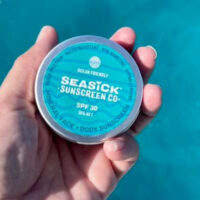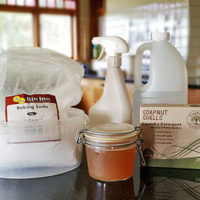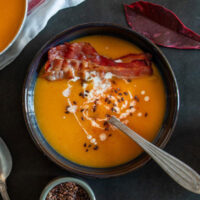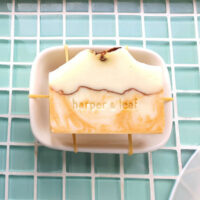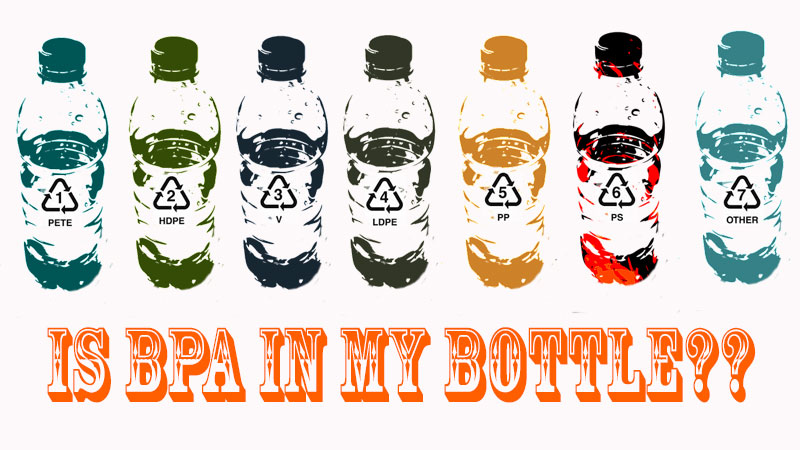
What is BPA?
BPA stands for Bisphenol A. BPA is an industrial chemical that is used in the production of polycarbonate plastics and also in the resins used to form seals and line food and drink cans. The epoxy resin lining found in many tin cans prevents the contents of the can from contamination and prolongs the shelf life of the product.
BPA is also used in the manufacture of clear, hard plastic items like water bottles and food storage containers because it’s a cost effective option and makes the plastic hard wearing, shatter proof and heat resistant. It used to be found in baby bottles too before manufacturers phased out its use in response to customer demand.
Outside of the kitchen, it’s uses are quite diverse including medical devices, toys, safety equipment, car parts, electronic components and it’s even found on many of the thermal paper receipts generated by tills and ATMs!!
You might be surprised to discover that you probably have some BPA in your body right now (more than 90% of us do). Tests have consistently found the chemical in blood and urine, and if you’re pregnant, also in the umbilical cord blood and in the amniotic fluid cushioning your foetus.
You’ve probably picked most of this up by eating food that was stored or packaged in a container made with BPA. BPA and other chemical additives can leach from the plastic into the food over time, a process that is sped up by heating, microwaving, repeat washings with harsh detergents, scratching and prolonged contact with fatty or oily food.
Should we be Worried?
BPA is an endocrine disrupter. Simply put, this means that it looks and acts a bit like our hormone oestrogen. Our bodies think it’s the real deal and allow it to bind with our oestrogen receptors, producing ‘fake’ hormonal reactions which influence bodily functions like growth, appetite, foetal development and reproduction.
BPA may also have the ability to interact with other hormone receptors such as thyroid hormone receptors, testosterone receptors and receptors that mediate fat cell generation.
The rather worrying list of potential dangers of BPA include:
• Several studies have shown that BPA can negatively affect many aspects of male and female fertility
• Exposure to BPA before being born may influence a baby’s birth weight, hormonal development, behaviour and cancer risk later in life
• Higher levels of BPA seem to be linked to an increased risk of Type 2 diabetes, high blood pressure and heart disease
Why isn’t BPA Banned?
After reading this list of potential dangers you wouldn’t be mad to assume that governments and food safety authorities would have taken some action and regulated the use of BPA to protect us.
Well, some countries have taken action and banned BPA, but this is largely only in relation to products for babies and young children.
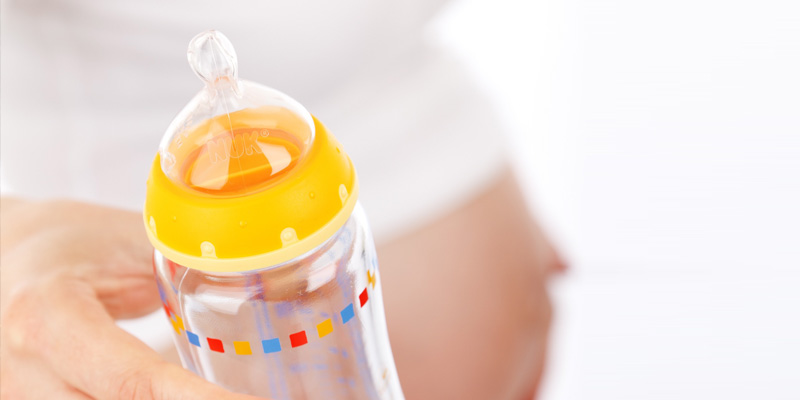
The FDA in America did eventually place a ban on BPA in baby bottles and sippy cups but only after manufacturers had stopped using the chemical anyway. Their current position is that the amount of BPA that could reasonably be ingested by us is so low that it can still be considered safe to use and no other regulations or restrictions are required.
Regulatory bodies here in Australia and New Zealand have not yet taken action to restrict or regulate the use of BPA although, as in America, most companies making plastic baby products phased out the use of BPA ages ago.
The BPA Controversy
So you can sense the tension. International regulatory bodies who have decided to do nothing to regulate the use of BPA in everyday plastics versus toxicology professors, breast cancer societies, numerous independent studies and consumer groups who firmly believe there are dangers associated with the use of BPA which the general public need to be protected from.
Whoever you believe, it’s great to see that consumer pressure has resulted in some changes which means we are now able to buy ‘BPA Free’ baby bottles and other plastic products that do not contain BPA. This is a good example of companies having to take action not because of a new law, but because of what their customers are telling them they want (or don’t want).
But Wait…There’s More to BPA Free.
Eliminating BPA from products is one thing, but what is it replaced with…?? In lots of cases, BPA has been replaced with Bisphenol S (BPS) or Bisphenol F (BPF). Studies as to the safety of BPS are limited but initial research shows that it may well be an endocrine disrupter, just like BPA. It’s not an exclusive list, but plastics labelled with the recycling numbers 3 or 7 or displaying the letters ‘PC’ are more likely to contain BPA, BPS or BPF.
As a Consumer…What Should I Do..??
Well, if you’re trying to avoid BPA or other potentially dangerous chemicals, let’s be frank…..it’s not easy!! As we just mentioned, even some products labelled BPA Free are perhaps not the safe option we hoped they were.
If you are in any doubt at all as to the safety of plastics and BPA in particular, the best thing you can do is limit your exposure to them.
Here are some things you can do to lower the potential risk of BPA to you and your family:
Consider Stainless Steel
Stainless steel is a great alternative to plastic so if you or your kids use plastic lunch boxes or reusable plastic water bottles, why not consider stainless steel…?? It has all the benefits of plastic but without the BPA!! If you’re looking for high quality, food grade stainless steel lunch boxes and bottles our Vendor Meals in Steel has something to suit everyone in the family.
Use Plastic Food Storage Containers Properly
Having a variety of food storage containers available is great – it helps reduce food waste as we can store our leftovers safely. But if the containers are plastic, it’s best to be careful about how you use them. Heating up your plastic can encourage the release of harmful additives into your food, so if you’ve purchased or stored food in a plastic container, transfer it to a glass container or ceramic plate before heating.
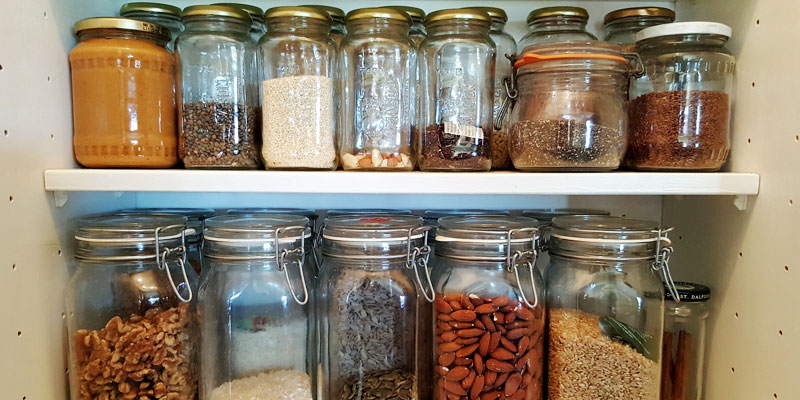
Switch to Glass
If you’re keen to avoid plastics altogether then glass is a great choice. It’s readily available, affordable, it comes in all shapes and sizes and is safe at most temperatures – just check before baking or freezing it.
For storage of pantry food items, glass jars are brilliant. I have a good stock of Fido jars for bulk items and for smaller quantities, I use mason jars that happened to come with a pasta sauce in them…!! But any glass jars will do.
Avoid the Riskier Plastics: #3 and #7 Plastics and any Plastic that says ‘PC’
These are the plastics most likely to contain BPA or it’s substitutes, BPS or BPF. Instead, stick to plastics labelled recycling number #2, #4 or #5 as these are less likely to contain BPA.
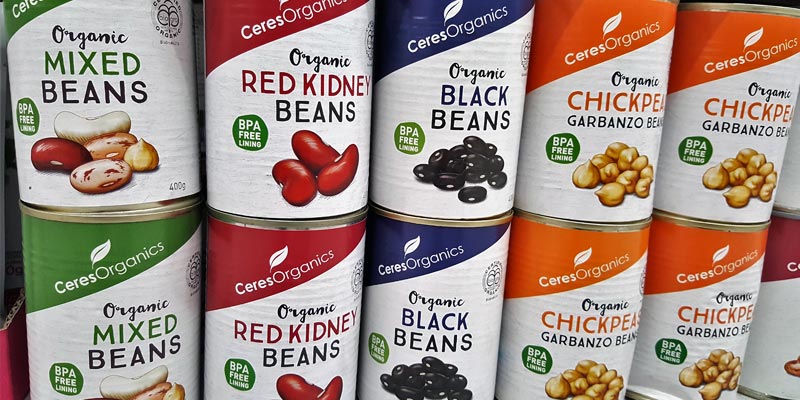
Look for tins that are BPA Free
The epoxy resins that are used to coat and seal the linings of tin cans are known to contain BPA. Some tins you’ll see will be labelled ‘BPA Free’ so if possible, choose these. Campbells recently made the move to BPA Free tin cans and Ceres Organics also offer a lot of their range in BPA Free cans.
Alternatively, choose products sold in glass containers (pasta sauce, passata and some fruit often come in glass jars) or even better, opt for the frozen or fresh version. I know there’s not really a good frozen alternative to baked beans but you could always try making your own!!
There are Other BPA Free Options
If you’ve got young kids in the mix and don’t want to risk breakages, plastic plates can seem like a godsend. But there are other materials available to us. Munch have an awesome line up of tableware made from rice husks. This eco product is biodegradable and dishwasher safe which makes it a fabulous alternative to plastic.
Make up your own Mind
Ultimately, you must do what you are comfortable with and what is within your means. If you can’t bear the thought of even the possibility of BPA, BPS or BPF getting into your food, then plastics in general are probably best avoided. Especially as all too often, we can’t be absolutely certain of what the labeling really means and there is no legal requirement for manufacturers to tell us what they put in their plastics anyway.
Now…I have been brought up with an arsenal of Tupperware to hand and I’ll admit to now having my own rather large collection of Sistema products which I find immensely useful for storing leftovers. I’m reassured that Sistema claim their products are BPA free, they are not a #7 plastic (they are in fact #5 which means they are a polypropylene rather than a polycarbonate) and they are “completely food safe”, according to Sistema which I believe to be a reputable company.
Avoiding BPA doesn’t mean going totally without plastic, but it does mean being careful about the type of plastic you choose and how you use it.
If you are well informed, have asked questions and satisfied yourself that your BPA Free library of plastic storage containers is safe for your family, then that’s fine too.

